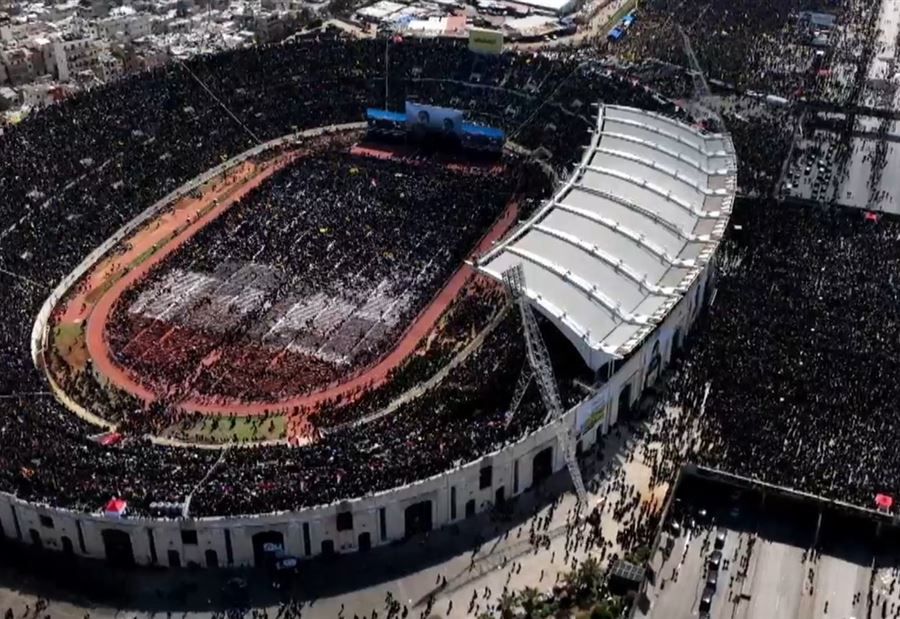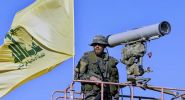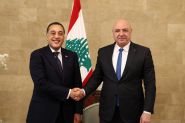
A relentless mobilization and exploitation of the popular masses on Lebanese soil. The objective: to offset the massive strategic losses suffered in recent months. This appears to be the defining feature of the Iranian Revolutionary Guard Corps’ approach—and, by extension, that of Hezbollah, its frontline proxy—in the coming phase. Neither the leadership of the "Party of God" nor its ideological sponsors truly have any other option.
Wafic Safa, the key operative in Hezbollah’s security apparatus, made this clear in a recent television interview: “From now on, we will focus on the domestic (Lebanese) scene,” he stated, while adding that the “regional flame” has not “yet” been extinguished.
In the current context, Hezbollah is confronted with a series of bitter realities that it struggles—despite its efforts—to conceal. Yet denial does not make them any less real. The Shiite party finds it difficult to admit the truth, but the facts are there, and they are worth recalling.
Hezbollah has suffered a stinging military defeat at the hands of the Israeli army. Its leadership at the highest levels has been crippled. Its infrastructure has been largely wiped out. A significant portion of the villages and towns under its control has been reduced to rubble. Its financial resources have grown increasingly precarious. Its popular base now finds itself homeless and destitute, openly questioning the rationale behind this “war of support,” launched on October 8, 2023, at the request of the Islamic Republic.
On the regional front, Hezbollah’s Iranian patrons are faring no better. They have lost their vital strategic stronghold in Assad’s Syria, shattering the “Shia crescent” they had built to link Tehran to Beirut’s southern suburbs. Their Iraqi and Yemeni proxies have been largely silenced for now. The Islamic Republic is grappling with President Donald Trump’s renewed “maximum pressure” policy, further deepening an already severe social and economic crisis. Meanwhile, Iran faces the serious risk of losing its last remaining major ally, Moscow, as a rapprochement takes shape between the new US administration and President Vladimir Putin.
Faced with such a widespread collapse, Hezbollah finds itself almost powerless against Israel, and its so-called “resistance” (illusory at best) is now nothing more than a mere fantasy. No longer able to act on the ground—despite the continued presence of the Israeli army in five strategic positions in southern Lebanon and ongoing Israeli air raids, the latest of which occurred during Sunday’s funerals at the Camille Chamoun Sports City—the Iran-backed party has only one card left to play: the mobilization and manipulation of the masses, hoping for a potential shift in the regional balance of power.
The final card that the "Party of God" is trying to play is intended to politically and media-wise maintain the illusion of power. However, appearances can be deceiving. The manner in which the funerals of Hassan Nasrallah and Hashem Safieddine were organized may actually signal weakness rather than strength. The campaign, conducted over several days and aimed at generating massive attendance at the Camille Chamoun Sports City, was accompanied by “official invitations” to the funerals (a first, surely— “invitations” to a funeral!); and most notably, the mobilization of the Pasdaran and all Iranian-backed proxies from Iraq, Yemen, and other countries. This reflects a twofold weakness within Hezbollah that manifests at two levels: on the one hand, the need to inflate the crowd size as much as possible to restore lost legitimacy and morally and politically offset the significant losses sustained; and on the other hand, the fear that partisan mobilization might fall short of expectations, which would reflect a wave of disillusionment—not among the inner circle of die-hard supporters, but rather within the wider ranks of its sympathizers. The huge crowds that had gathered in the streets to participate in the funerals of Rafic Hariri or Bashir Gemayel, to name just two examples, had not been “invited” or strongly urged to mobilize; they did so out of an instinctive drive, not one that was artificially orchestrated.
Members of the high-ranking official Iranian delegation who traveled to Beirut for the funerals were received by President Joseph Aoun, who made a particularly significant statement on this occasion: “Lebanon has endured enough due to the wars of others and has paid a heavy price for the Palestinian cause.” This sentiment is undoubtedly shared by an overwhelming majority of Lebanese and very likely by a sizable portion of the Shiite community. A message that resonates, clearly.




Comments